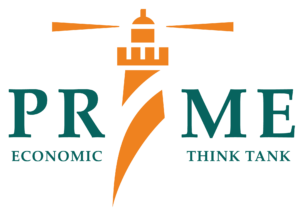
“Record high inflation is perhaps the most pressing problem,” said TRACIT Director-General Jeff Hardy. “When prices rise faster than incomes, illicit and black-market products become more tempting to consumers desperately cheaper alternatives.”
Speaking on this occasion, Executive Director of PRIME, Dr Ali Salman explained that “the 68 Billion Dollar black and gray markets are fueled by high taxes, tariffs and duties, because in these times of crippling inflation, citizens have nowhere else to go”.
According to Dr Salman, “Unless we minimize barriers to legal trade, the government of Pakistan has no chance of generating enough growth to raise required tax revenues and is set on a clear path towards bankruptcy”.
In Pakistan, the shadow economy is already equal to about 40 percent of GDP and significant levels of illicit trade can be found in many key economic sectors, including food fraud, illicit petroleum pesticides, counterfeiting, and trade in falsified and substandard pharmaceuticals. Discussants at the forum delineated the challenges faced in tackling illicit trade across sectors.
“These illicit markets have plagued the country for years – perpetuating a vicious circle of associated money laundering, organized crime, corruption, and tax evasion,” said Mr. Hardy. “We are pleased that the government is stepping up law enforcement against smuggling, money laundering and black marketers.”
Tax evasion is also a major problem in Pakistan, undermining its capacity for fiscal resource mobilization, especially when it amounts to as much as 6 percent of GDP. Tax evasion related to illicit trade in tea, tires and auto lubricants, and pharmaceuticals has grown to about PKR160 billion per year. The unregulated, untaxed illicit trade in cigarettes, which had increased about 10 percent over the last few years, now drains PKR 240 billion from fiscal revenue collections.
“Improving enforcement and tax collections can help mobilize domestic revenues without the need to raise taxes, which could stifle growth and the fragile economic recovery,” said Mr. Hardy. “Additional revenues resulting from tighter compliance with existing taxes and track and trace systems can help preserve economic stability and enhance debt sustainability.”
TRACIT and the Prime Institute also signed a Memorandum of Understanding establishing a framework for cooperation to mitigate illicit trade in Pakistan. Among the agreed areas for collaboration will be the development of a new, in-depth investigation of the size, scope and associated negative impacts of illicit trade on the Pakistan economy.
“One of the main takeaways from today’s meeting is the urgent need for more information and a better understanding of the drivers of illicit trade in Pakistan,” said Dr Ali Salman, Executive Director of the Prime Institute.
“We look forward to working with the Pakistan government and will leverage on the international expertise of TRACIT to start a research and advocacy agenda to implement comprehensive policies that consider the potential impact on all sectors of the economy and work to reduce the incentives for criminals to engage in illegal activities.”
Dr Ali Salman highlighted that “Smuggling is growing faster than legal trade and presently stands at 20% of GDP, indicating that formal markets are unable to meet the increasing demand of the Pakistani middle class. who are willing to take high risks to avoid the excessive cost of taxes and tariffs.
About TRACIT: The Transnational Alliance to Combat Illicit Trade (TRACIT) is an independent, private sector initiative to mitigate the economic and social damages of illicit trade by strengthening government enforcement mechanisms and mobilizing businesses across industry sectors most impacted by illicit trade.
About PRIME: The Policy Research Institute of Market Economy (PRIME) is an independent economic policy think tank based in Islamabad.
Contact: Cindy Braddon, Head of Communications and Public Policy, TRACIT, Tel: +1 571-365-6885 / cindy.braddon@TRACIT.org / X: @TRACIT_org. The full report and associated content are available at www.TRACIT.org.
